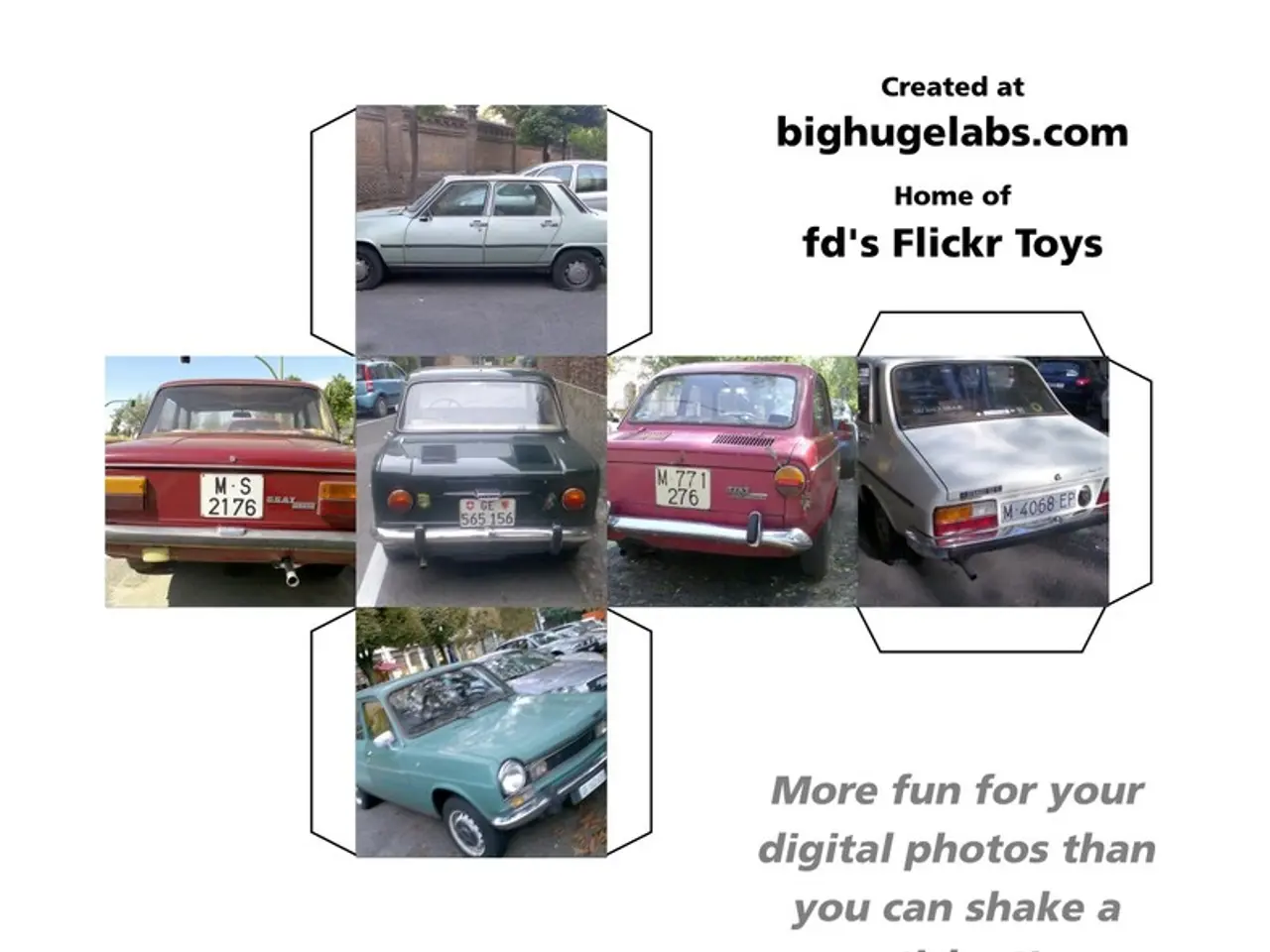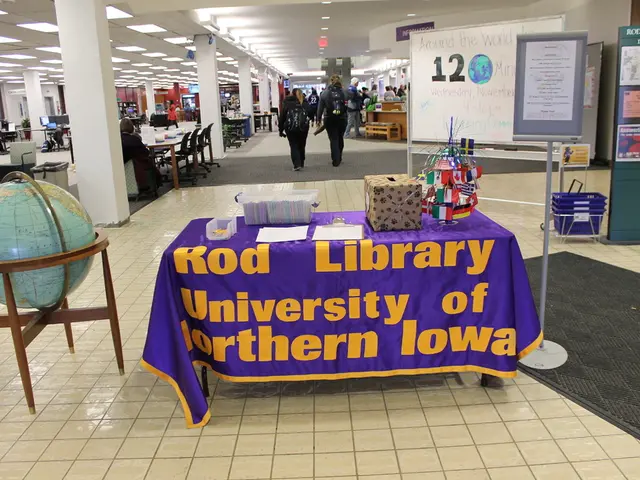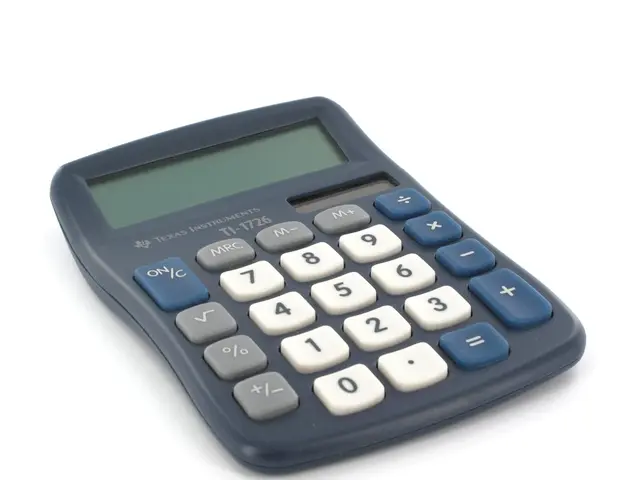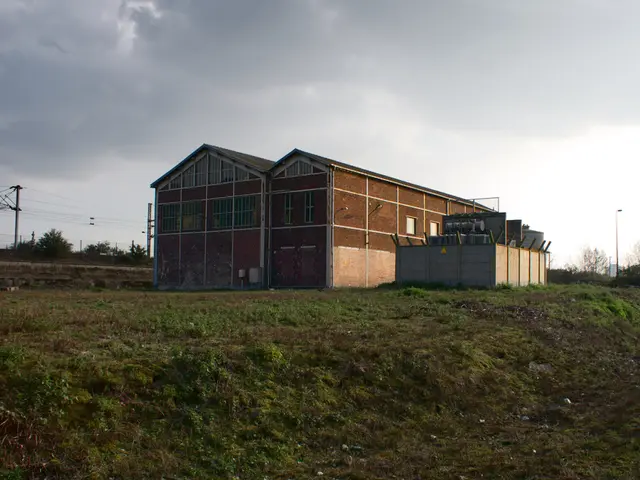Toyota demonstrates dedication to universal transportation with recent technological advancements.
In a commendable move towards inclusivity, Toyota is making significant strides in wheelchair mobility solutions. The automotive giant's latest initiatives revolve around the 2024/2025 Toyota Sienna Hybrid, equipped with BraunAbility Power XT Infloor wheelchair accessible vehicle conversions [2][4][5].
The Sienna Hybrid boasts a spacious 54-inch passenger door opening, integrated power ramps or lifts, and is noted for its fuel efficiency, reliable performance, and ample interior space, catering to the long-distance and daily travel needs of wheelchair users.
Beyond vehicle products, the Toyota Mobility Foundation (TMF) is actively investing in inclusive mobility initiatives worldwide. Recent projects include partnerships to develop innovative mobility solutions for people with reduced mobility, such as launching pilot programs with cities like Vichy aimed at enhancing independence and access to mobility. TMF also supports startups through the Mobility Unlimited Hub, nurturing breakthrough active mobility technologies that align with Toyota’s vision of "mobility for all" [3].
One of Toyota's most exciting innovations is the JUU, an electric wheelchair designed to navigate steps up to 16 cm tall while the user remains seated. The JUU's tail lowers and raises automatically, allowing the user to ascend and descend stairs unassisted [6]. Toyota is continuing to develop the technology for the JUU to give unaided wheelchair users greater range and freedom of mobility.
The JUU's modern design was created with the joy of mobility in mind, and it was showcased at the 2022 International Home Care and Rehabilitation Exhibition. The JUU is equipped with electric power steering motors from cars, improving safety by preventing tire counter-rotation. Toyota plans to use other reliable and cost-effective car components in the next-generation JUU model.
The JUU opens up the possibility for wheelchair users to visit places like shrines and temples without assistance. This aligns with Toyota's guiding principle as a mobility company: "mobility for all" [7].
In addition to the JUU, Toyota is developing a one-touch fastening device for wheelchair users to secure their mobility devices in vehicles more easily and quickly. This device is part of a consortium involving car, bus, and wheelchair manufacturers, established in April 2022, that aims to standardize the anchor bars mounted at the base of wheelchairs. The one-touch device secures the anchor bar at the press of a button once the wheelchair is in position, reducing the time it takes to secure the wheelchair from around two minutes to two seconds [8].
Toyota aims to make the one-touch fastening device available for various types of vehicles, including ships and airplanes, to ensure wheelchair users can enjoy stress-free mobility in multiple settings.
The e-Palette, another innovative offering from Toyota, is designed to serve people in mountainous and sparsely populated regions, or those who have difficulty traveling for themselves. The e-Palette is equipped with a system for autonomous driving being developed by Toyota, Woven by Toyota, and Denso. Two variations of the e-Palette were showcased: one with a driver's seat and one for autonomous driving [9].
The e-Palette's interior can be tailored to various mobility services, including a convenience store, cafe, mobile delivery lockers, or an apparel shop. Toyota will begin offering the piloted e-Palette publicly in the first half of the 2020s, while the driverless version is being developed for places like Woven City [10].
Together, these efforts demonstrate Toyota's dual approach: providing advanced, practical wheelchair-accessible vehicles like the Sienna while fostering broader accessibility innovations through TMF programs. This approach directly contributes to Toyota’s mission by enabling more people with mobility challenges to travel freely and participate fully in society [3][5].
The Sienna Hybrid, with its innovation in wheelchair accessible vehicle conversions, aligns with Toyota's commitment in the automotive industry, catering to the transportational needs of wheelchair users. Meanwhile, Toyota Mobility Foundation (TMF) is significantly investing in finance for startups working on technology-driven mobility solutions, aiming to foster independence and accessibility worldwide.




